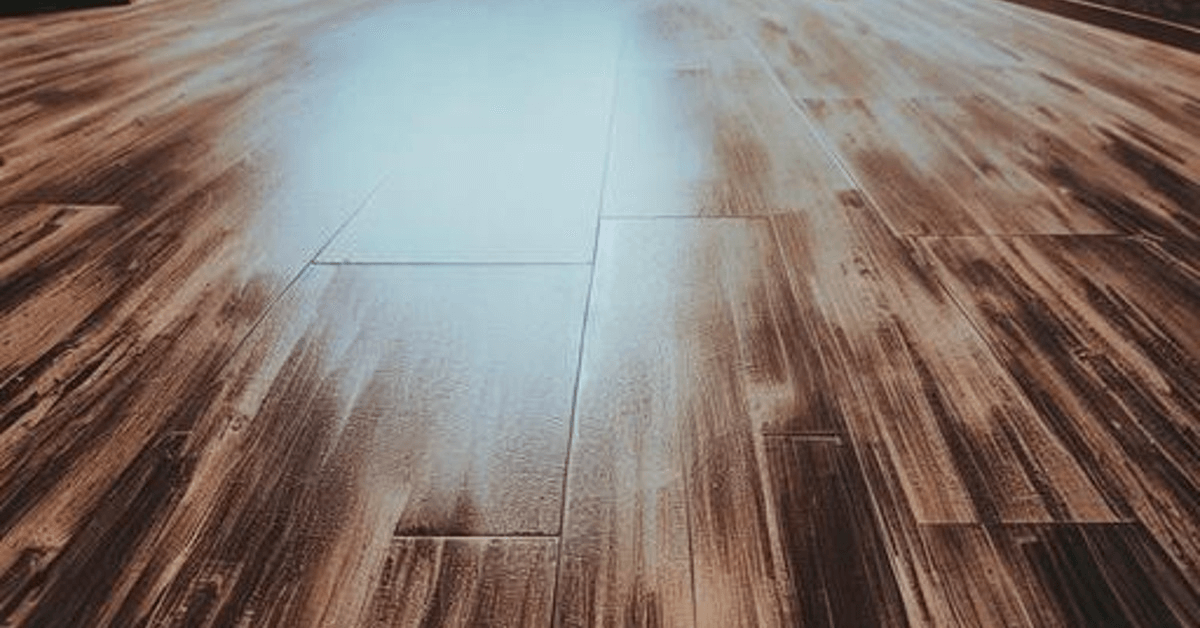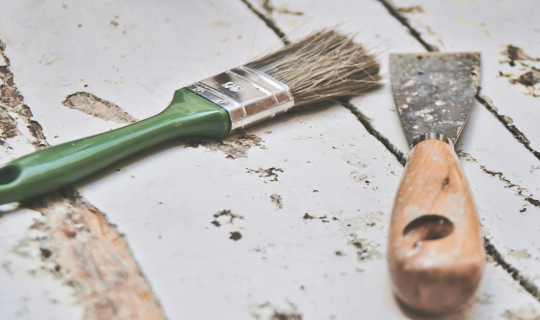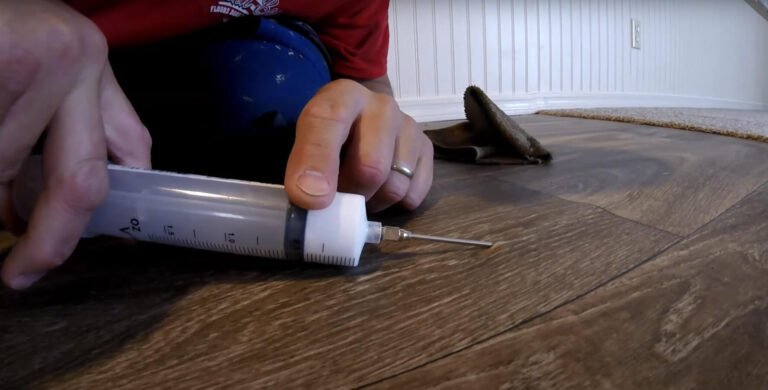Guide to Extending Your Vinyl Flooring’s Lifespan
Unlock the secrets to a long-lasting vinyl floor! With our guide, explore factors like quality materials, maintenance, and care that can help your vinyl flooring last for 20 years or more.

How Long Does Vinyl Floor Last
Vinyl flooring is a popular option for homeowners and businesses looking for an affordable, durable and low-maintenance flooring solution. It is a synthetic material that comes in a wide variety of designs and patterns, making it a versatile option for any room or decor style.
One of the most common questions people have about vinyl flooring is how long it will last. While there is no straightforward answer, as it depends on a variety of factors, we can explore some of the most important elements that contribute to the longevity of vinyl floors.
In this article, we’ll delve into the quality of materials, maintenance and care, high-traffic areas and wear, as well as sunlight and moisture exposure, to help you understand how long your vinyl floors can be expected to last and how to make them last longer.
Factors Affecting Vinyl Flooring Longevity
You’ll want to consider the wear and tear of your daily footsteps, the occasional spills and stains, and the level of foot traffic in your home when thinking about how much life you can expect from your vinyl flooring. These factors heavily impact the longevity of vinyl flooring.
For instance, if you have a large family or pets, you can expect your vinyl floors to experience more wear and tear than if you live alone.
Another factor to consider is the installation method used for your vinyl flooring. Different methods come with varying levels of durability. For example, glue-down vinyl flooring is more durable than floating vinyl planks. This is because the glue-down method ensures that the flooring is firmly attached to the subfloor, making it more resistant to wear and tear.
Lastly, environmental factors such as humidity and temperature can also affect the lifespan of your vinyl flooring. Excessive humidity can cause the flooring to buckle or warp, while extreme temperatures may cause the vinyl to crack or become brittle. Therefore, it’s essential to ensure that your home’s environment is suitable for vinyl flooring installation to maximize its lifespan.
In summary, several factors come into play when determining how long your vinyl flooring will last. The wear and tear of daily use, installation method, and environmental factors all play a significant role in determining the durability of your floors. By taking these factors into account, you can increase the lifespan of your vinyl flooring and enjoy it for many years to come.
Quality of Materials
If you want your flooring to stand the test of time, it’s important to invest in high-quality materials. When it comes to vinyl flooring, the quality of materials you choose can significantly impact its longevity. While it may be tempting to opt for less expensive vinyl flooring, it’s important to consider the trade-off between durability and cost.
Here are three things to keep in mind when it comes to the quality of materials for your vinyl flooring:
- Choose a vinyl thickness that is appropriate for your needs. A thicker vinyl will generally be more durable and resistant to wear and tear. However, thicker vinyl may also be more difficult to install, and may require special installation techniques.
- Look for vinyl that has a strong wear layer. This is the top layer of the vinyl that comes into contact with your feet, shoes, and furniture. A strong wear layer will help prevent scratches, scuffs, and other damage.
- Consider the quality of the adhesive used to install the vinyl flooring. A high-quality adhesive will help ensure that the vinyl stays in place over time, even with heavy foot traffic and regular wear and tear.
Investing in high-quality materials for your vinyl flooring can help increase its longevity and ensure that it stands up to everyday wear and tear. By carefully considering factors like vinyl thickness, wear layer strength, and adhesive quality, you can choose materials that will provide a durable and long-lasting flooring solution for your home.
Maintenance and Care
Maintaining and caring for your vinyl flooring is crucial to keep it looking its best and ensuring it remains resilient against wear and tear. Regular cleaning is essential to remove dirt and debris that can scratch and damage the surface. It is important to use the correct cleaning methods for your specific type of vinyl flooring to avoid any damage.
For example, some vinyl flooring may require a mild cleaner, while others may require a more heavy-duty cleaner. Additionally, be sure to avoid using abrasive scrubbers or harsh chemicals that can cause damage to the protective coatings on the vinyl.
In addition to regular cleaning, it is important to take preventative measures to protect your vinyl flooring. Using furniture pads or area rugs can help to prevent scratches and scuffs on the surface. Also, be careful when moving heavy objects across the vinyl flooring, as this can cause damage.
Applying a protective coating to the surface of the vinyl can also help to increase its durability and longevity. There are a variety of coatings available, including wax or polish, that can help to protect the surface from scratches and wear.
By following these maintenance and care tips, you can help to extend the lifespan of your vinyl flooring. Regular cleaning and preventative measures can help to keep the surface looking like new, while also protecting it from damage. Additionally, applying a protective coating can help to increase the durability of the vinyl, ensuring that it lasts for many years to come.
With the proper care and maintenance, your vinyl flooring can provide a beautiful and durable surface for your home or business.
High-Traffic Areas and Wear
In high-traffic areas, it’s crucial to take preventative measures to protect your vinyl flooring from wear and tear to ensure it remains durable and visually appealing. Vinyl flooring is a popular option for high-traffic areas, such as entryways, hallways, and commercial spaces, due to its durability and low maintenance needs. However, even the toughest vinyl flooring can be affected by constant foot traffic, which can lead to fading, scratches, and discoloration.
To prevent wear and tear, here are three tips to keep in mind:
- Place doormats at entryways to trap dirt and debris before it can be tracked onto the vinyl flooring.
- Use furniture pads under the legs of chairs, tables, and other heavy objects to prevent scratches and scuffs.
- Sweep or vacuum regularly to remove dirt and debris that can scratch the surface of the vinyl flooring.
If your vinyl flooring is showing signs of wear and tear despite your best efforts, there are replacement options available.
One option is to install vinyl plank flooring, which looks like hardwood flooring but is more durable and easier to maintain.
Another option is to install luxury vinyl tile, which is more water-resistant and scratch-resistant than traditional vinyl flooring.
In summary, taking preventative measures to protect your vinyl flooring in high-traffic areas is crucial to maintaining its durability and visual appeal. If your vinyl flooring does show signs of wear and tear, there are several replacement options available to consider.
By following these tips and exploring replacement options, you can ensure that your vinyl flooring lasts for years to come.
Sunlight and Moisture Exposure
Excessive sunlight and moisture can wreak havoc on your vinyl flooring, causing it to fade, warp, and crack over time. Sunlight fading can be a significant concern for vinyl flooring that is exposed to direct sunlight. Over time, UV rays can cause the color of the flooring to fade, which can be unsightly and decrease the lifespan of your floor. To prevent sunlight fading, it’s essential to install shades or blinds on windows that allow direct sunlight into the room.
Water damage is another significant concern for vinyl flooring. If water seeps underneath the vinyl flooring, it can cause the adhesive to loosen, which can lead to warping and even mold growth. To prevent water damage, it’s essential to keep your vinyl flooring dry. Wipe up spills as soon as they happen, and avoid wet mopping your vinyl flooring.
If you do need to use water to clean your vinyl flooring, make sure to use a damp mop and dry the floor thoroughly afterward. To protect your vinyl flooring from sunlight and moisture exposure, it’s essential to take preventative measures. Installing shades or blinds on windows that allow direct sunlight into the room can help prevent sunlight fading, while wiping up spills and avoiding wet mopping can help prevent water damage.
By taking these steps, you can help extend the lifespan of your vinyl flooring and keep it looking beautiful for years to come.
Conclusion
So, to sum up, how long vinyl flooring lasts can depend on a variety of factors. The quality of materials, maintenance and care, high-traffic areas and wear, and sunlight and moisture exposure can all play a role in how long your vinyl flooring will last.
However, with proper care and maintenance, vinyl flooring can last up to 20 years or more. To ensure your vinyl flooring lasts as long as possible, it’s important to invest in high-quality materials and to care for your floors properly.
This includes regularly cleaning and sweeping your floors, avoiding excessive water exposure, and using furniture pads to protect against scratches and dents. By taking the time to care for your vinyl floors, you can enjoy beautiful, durable flooring for years to come.


